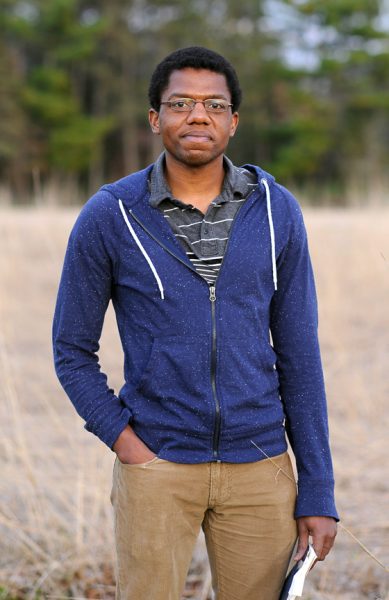Bernard Grant’s chapbook Fly Back At Me was released in December 2016 by Yellow Chair Review. Grant will be giving away a copy of Fly Back At Me to the author of the story he chooses for publication during his reading week. To send him a story, visit our submissions page.
You write both fiction and nonfiction. I’m always interested in how writers move between those two and how one informs the other. Can you tell us a little about your process?
Writing fiction is a mysterious process. I usually set out knowing very little about the characters or setting, and I really take my time on the first draft of a story, focusing on language more than anything else. After a break, I read through the story, trying to understand the characters’ desires, and once I have a good sense of that I can move onto the plot of the story and how the people around them and their setting lead them to recovering what they’ve lost or finding what they want.
The first draft of my essays come pretty quickly, and then it’s just about tying together themes and trying to figure out what the hell I’m writing about. Fiction seems to take longer, maybe unnecessarily long, though the essays tend to confuse me more because I can never write them chronologically, and when I move away from scene or summary, it’s often difficult to differentiate reflection from just talking to myself on the page.
What kind of story would you love to see in the queue this week? Are there certain themes or styles you’re particularly drawn to?
I’m not looking for anything in particular. I just want to see good writing. I say that now, but I know that once I begin to read, my own proclivities will take over. I’ll likely focus on sound and image, and I do want a sense of a character wanting something. As far as flash, I tend to favor some sense of experimentation. But, considering our current political climate, I’ll definitely have an eye out for something that feels meaningful to this particular time, something that reflects the struggles of underrepresented groups or anyone who feels a resistance to the frightening shift in culture we’re experiencing.
What do you think is essential to good flash fiction?
Sound, focus, and metaphor.
You have an MFA and are currently working on a Ph.D so it’s safe to assume you’ve absorbed a lot of writing advice. What is the best (or worst) writing advice you’ve received?
The best advice I’ve received is that when returning to revise an old piece and even once I’m finished with one, I should print it out and retype it. This always leads to new discoveries and news ways to tighten the language, to make my sentences as pretty as they can be.
The worst advice I’ve received–this was from a nonwriter–was that I read too much and spend too much time inside to be a writer, that I need to go out every day and experience the world, otherwise I’m just stealing other people’s words.
So I read a lot, steal selectively, and spend a lot of time inside my apartment, thinking and writing, and printing and retyping, and making my sentences as pretty as can be.



 The core workshop of SmokeLong Fitness is all in writing, so you can take part from anywhere at anytime. We are excited about creating a supportive, consistent and structured environment for flash writers to work on their craft in a community. We are thrilled and proud to say that our workshop participants have won, placed, or been listed in every major flash competition. Community works.
The core workshop of SmokeLong Fitness is all in writing, so you can take part from anywhere at anytime. We are excited about creating a supportive, consistent and structured environment for flash writers to work on their craft in a community. We are thrilled and proud to say that our workshop participants have won, placed, or been listed in every major flash competition. Community works.